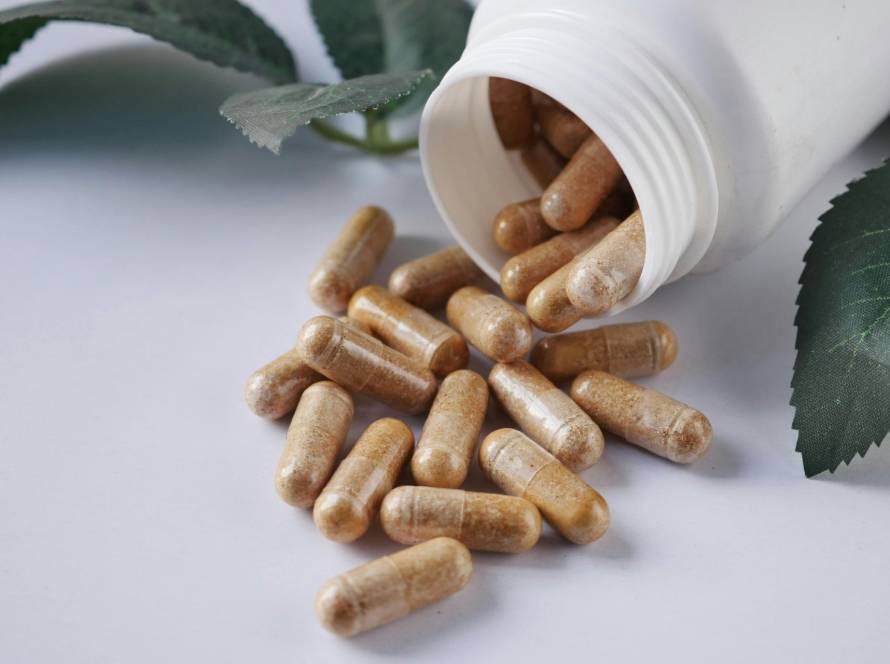Is marine collagen good for you? This question matters because collagen makes up about 30% of all protein in our bodies, it’s our most abundant protein. Our natural collagen production drops as we age and then we see wrinkles appear, muscles weaken and joints become uncomfortable.
This piece dives into the science behind marine collagen’s benefits, from fighting aging signs to keeping bones healthy. We’ll learn what sets it apart from other types and why many call it a safer, more eco-friendly choice. We’ll also show how to add marine collagen supplements to our health routine effectively.
Does marine collagen offer real health benefits?
Marine collagen is considered good for us, especially for supporting skin elasticity, hydration and joint health. Derived from fish, it is rich in type I collagen, the most abundant form in the human body and is easily absorbed due to its small peptide size.
Studies suggest that marine collagen may help reduce signs of aging, improve joint mobility and strengthen hair and nails. It’s also a good alternative for those avoiding bovine or pork sources. As long as there are no fish allergies, it can be a safe and beneficial addition to our wellness routine.
What is marine collagen and how is it different?
Marine collagen is a protein that comes from water sources. Fish processing industries use only about 25% of fish weight, leaving 75% as waste products. About 30% of these leftover parts are scale, bone and skin, excellent sources of collagen.
Definition and sources: fish skin, scales, bones
The process to extract marine collagen uses hydrolysis. Water breaks down collagen molecules into peptides. This protein comes from many sea creatures like ray-finned fish, sharks and even squid and starfish. Fish skin makes the best source because it’s abundant and easy to get from industries. The manufacturing uses acid soluble collagen (ASC) extraction methods that can yield up to 61.26% collagen from dry weight, according to studies.
Type I collagen and its biological role
Marine collagen is almost all Type I collagen. This type makes up about 90% of human skin’s, tendons, ligaments and bones collagen. Type I collagen builds these tissues and plays a key role in muscle, where it helps transmit force through connective tissues that link muscle fibers to tendons. The protein also stretches well, works with the body and makes cell adhesion possible. Collagen’s triple-helix structure gives strength to various body tissues.
Comparison with bovine and porcine collagen
Bovine collagen has Types I and III, but marine collagen is mostly Type I. This makeup helps it support skin structure and beauty health better. Marine collagen beats mammal sources in several ways. We won’t find risks of diseases like bovine spongiform encephalopathy (BSE) or foot and mouth disease. Religious restrictions don’t apply to it like they do to cow or pig collagen. Marine collagen uses fish industry’s leftover parts, making it eco-friendly.
Bioavailability and absorption advantages
The most important difference shows in marine collagen’s bioavailability. Its smaller molecular size helps the body absorb it better than other collagens. Research shows enzymatically hydrolyzed collagen is absorbed 1.5 times better than non-enzymatically hydrolyzed collagen. The body can process it faster because of its lower molecular weight.
What is it good for
Scientific research shows many health benefits of marine collagen. Clinical studies support how well it works in all body systems.
Skin health: elasticity, hydration and wrinkle reduction
Marine collagen substantially improves skin appearance. A randomized, triple-blind study found that people taking fish-derived hydrolyzed collagen saw a remarkable 35% reduction in wrinkle score after 12 weeks. It revealed 20% and 10% improvement in cheek skin elasticity at 6 and 12 weeks. People also reported better hydration (14%), radiance (22%) and firmness (25%) compared to placebo groups. These benefits happen because it gets fibroblasts to produce more collagen naturally and improves skin structure from within.
Joint and bone support: cartilage integrity and density
Marine collagen brings promising benefits to skeletal health. Research shows it increases bone mineral density and reduces osteoporosis risk. Osteoarthritis patients who took marine collagen supplements had less joint pain and better function than placebo groups. This works through direct supplementation of collagen building blocks and immune responses that protect existing cartilage. Native collagen works through oral tolerance, while hydrolyzed collagen provides bioactive peptides that build up in cartilage tissues.
Hair and nail strength: keratin support
Marine collagen contains amino acids vital for hair and nail structure. Proline serves as keratin’s primary component. Studies show it can improve hair thickness, reduce breakage and boost nail growth. Research found that collagen peptides from tilapia scales helped regrow hair and improved human dermal papilla cells, which help hair follicles work properly.
Gut and immune function: glycine and proline roles
Our intestinal epithelium creates a vital barrier between external and internal environments. Marine collagen peptides strengthen this barrier with high glycine and proline content. Research shows 93% of people had fewer digestive issues, including bloating, after taking 20g daily collagen peptides. It improves gut lining integrity, helps healthy bacteria grow and regulates gastric juice secretion.
Antioxidant and anti-inflammatory effects
It works as a powerful antioxidant against oxidative stress. Studies showed that marine collagen, especially from fish scales, fights four different types of free radicals. These antioxidant properties protect cells from damage that leads to aging and disease. Older mice showed substantial increases in key antioxidant enzymes like superoxide dismutase and glutathione peroxidase after taking collagen supplements, according to research.
Potential metabolic and cardiovascular benefits
Marine collagen supports heart health in several ways. Studies found collagen peptide supplements (900mg-15g daily for 6-12 weeks) lowered systolic blood pressure by about 5 mmHg. The supplements also reduced LDL cholesterol levels and body fat while increasing fat-free mass. These improvements come from collagen peptides ability to boost lipid metabolism, increase insulin sensitivity and improve arterial flexibility.
How to use marine collagen supplements effectively
We must understand the right forms, best ways to absorb, proper doses and consistent timing to get the most from marine collagen supplements.
Forms: powder, capsules, liquid
Marine collagen supplements are available in three main forms. Powdered hydrolyzed collagen mixes well with drinks or food and gives us more options. Capsules work great for travel or if we don’t like the taste. Liquid formulations claim faster absorption, but research hasn’t shown they work better. The hydrolyzed form will give a better absorption rate than native collagen, whatever form we choose.
Best practices for absorption
Vitamin C is a vital part of collagen synthesis, according to studies. Taking marine collagen with vitamin C-rich foods or supplements helps our body use it better. We should avoid taking iron supplements at the same time as collagen because they might compete for absorption. Warm liquids help powder forms dissolve better, but don’t use boiling water.
Marine collagen is a highly bioavailable protein supplement backed by solid scientific evidence. Studies show it improves skin elasticity, reduces wrinkle depth and boosts hydration levels. Research also confirms that it helps increase bone mineral density and supports joint function and cartilage health.


